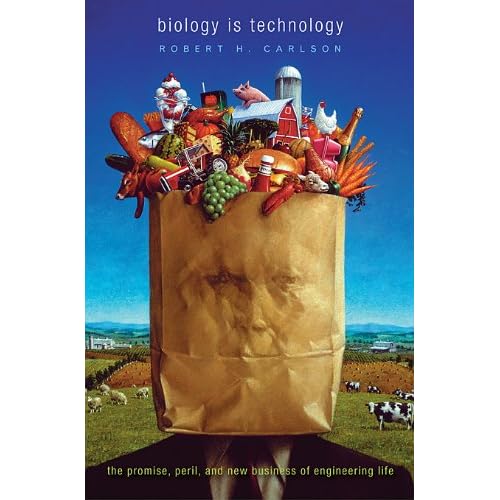
Robert Carlson bridges both the NYC Resistor and DIYBio worlds – he’s an electrical engineer who turns E. coli into circuits! He famously discovered the Carlson curves, the biotech equivalent of Moore’s Law. They show that biotech is advancing at a pace consistent with digital tech.
Come join us at the NEW NYC Resistor space for an afternoon talk by Rob and discussion afterwards.
DATE: Saturday, March 13
TIME: 2:00pm – 4:00pm
LOCATION: NYCR
Here’s a video of Robert from the Economist that appeared on the DIYBio blog recently: http://diybio.org/2010/01/01/rob-carlson-discusses-diybio-and-open-source-biology-on-the-economist. And an excerpt from his Wired article where he wrote about the emergence of DIYBiology in 2005:
The era of garage biology is upon us. Want to participate? Take a moment to buy yourself a molecular biology lab on eBay. A mere $1,000 will get you a set of precision pipettors for handling liquids and an electrophoresis rig for analyzing DNA. Side trips to sites like BestUse and LabX (two of my favorites) may be required to round out your purchases with graduated cylinders or a PCR thermocycler for amplifying DNA. If you can’t afford a particular gizmo, just wait six months – the supply of used laboratory gear only gets better with time. Links to sought-after reagents and protocols can be found at DNAHack. And, of course, Google is no end of help.
Still, don’t expect to cure cancer right away, surprise your loved ones with a stylish new feather goatee, or crank out a devilish frankenbug. (Instant bioterrorism is likely beyond your reach, too.) The goodies you buy online require practice to use properly. The necessary skills may be acquired through trial and error, studying online curricula, or taking a lab course at a community college. Although there are cookbook recipes for procedures to purify DNA or insert it into a bacterium, bench biology is not easy; the many molecular manipulations required to play with genes demand real skills.